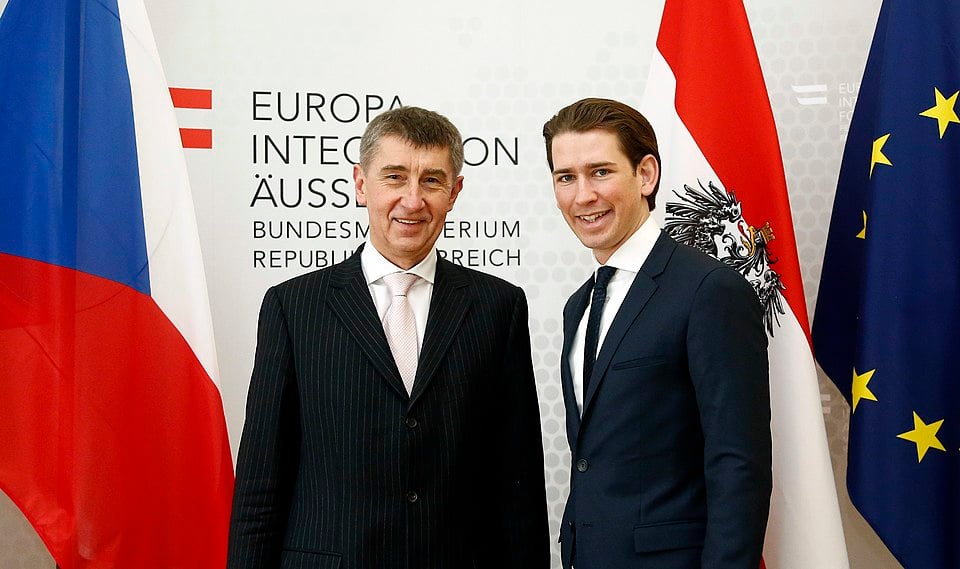Analysis
Former PM Babiš set for clear election victory in Czech Republic
Andrej Babiš, billionaire businessman and leader of the populist ANO party, is once again at the centre of Czech politics. Polls give him a commanding lead ahead of this weekend’s parliamentary election, but his return to the prime minister’s office is far from certain. Coalition arithmetic, legal battles, and a skeptical president could all stand in his way.
The 71-year-old former prime minister and businessman — one of the richest men in the country — is almost certain to finish first during the elections this weekend on 3 and 4 October.
According to polls, his populist party ANO can hope for about 30 percent of the vote. ANO is the Czech word for "Yes." At the party’s founding in 2011, it was also an acronym for "Action of Dissatisfied Citizens."
Even now, protest against what Babiš calls the current “anti-social government” is the central theme of his campaign.
The economic crisis following Russia’s full-scale invasion of Ukraine in 2022 still weighs heavily on prime minister Petr Fiala’s centre-right government.
Skyrocketing energy prices and a temporary record inflation of 18 percent remain vivid in many voters' memories. Inflation has long since fallen again — just 2.4 percent in September.
But even though some stability has returned, the economy recovered only slowly overall. According to a widely discussed analysis by the PAQ Research Institute, a third of Czech households are still worse off than they were in 2021.
Babiš is striking exactly that chord — and successfully, it seems.
Fiala’s governing conservative coalition Spolu (“Together”) is trailing in second-place, about ten percentage points behind ANO.
Babiš also accuses the government of spreading fear of Russia and the war. He does not pursue overtly pro-Russian rhetoric.
But since the Czech Republic is currently one of Ukraine’s strongest supporters, the narrative that the government cares more about Kyiv and war refugees than about its own population resonates with many.
Difficult partners
Nevertheless, whether and how Babiš, who was already prime minister from 2017 to 2021, could become premier again is entirely unclear.
One key question is possible coalition options. Few believe that Fiala’s Spolu and the co-governing liberal mayors’ party Stan could retain enough support. Even with the Pirate Party, which left the government last year, the current prime minister would struggle to reach a majority.
But Babiš, too, does not have a free pass.
“It could well happen that ANO gets fewer seats this time than in the 2021 election,” explains political scientist Ladislav Cabada of Prague’s Metropolitan University.
The reason: polls suggest that in Babiš’s own political camp, there are now three other parties and alliances with chances of entering parliament.
Previously, there was only the far-right Freedom and Direct Democracy (SPD) party of Czech-Japanese politician Tomio Okamura. Now the far-left alliance Stačilo (“Enough”) and the rightwing populist Motoristé party are also pushing for seats.
Alliance with Kickl and Orbán
All of them could, in principle, work with the billionaire Babiš, who last year in Vienna co-founded the EU-sceptical alliance “Patriots for Europe” with Austrian FPÖ leader Herbert Kickl and Hungary’s national-conservative prime minister Viktor Orbán.
But the devil is in the details: Brussels-bashing is also a cornerstone of Babiš’s rhetoric, but referendums on a possible EU or Nato exit, as demanded on both extremes by SPD and Stačilo, are not acceptable to him.
The Motoristé, who present themselves as staunch social conservatives and define themselves primarily by defending combustion engines and fighting the EU’s Green Deal, also reject exit referendums.
But their entry into parliament is far from guaranteed, and a majority with ANO has recently seemed unlikely. Even cooperation between ANO and parts of the current government camp is therefore not entirely ruled out.

Legal problems
Babiš faces challenges beyond difficult coalition talks. During his first term in office, he had to transfer his holding Agrofert — one of the largest companies in the Czech Republic — into a trust, as required by conflict-of-interest law.
The conglomerate, active mainly in agriculture, chemicals, and food, is now back under his ownership. But the law has since been tightened. It would no longer be as easy for Babiš to simply place the company in the hands of close relatives, as he did last time.
And then there is president Petr Pavel, who defeated Babiš decisively in the 2023 presidential election.
Unlike his predecessor Miloš Zeman, who always opened doors for Babiš, Pavel would look very closely at potential conflicts of interest and at the still-pending court case over alleged EU subsidy fraud linked to the Čapí hnízdo (“Stork’s Nest”) leisure resort before appointing him.
Karel Havlíček as a joker?
That is why one name is increasingly mentioned in the Czech Republic as a possible head of government instead of Babiš: Karel Havlíček, deputy head of ANO and former minister of industry and transport.
Could boss Babiš step back into the second row after all? Perhaps — but only formally, believes political scientist Ladislav Cabada.
Babiš, after all, not only keeps a tight grip on his conglomerate but also on his party: “Even if he himself doesn’t become prime minister, but Havlíček does, Babiš knows he could easily control him.”
This text was first published by Der Standard, with contributions by Petr Jedlička from Denik Referendum. It was produced as part of the PULSE project, a European initiative supporting international journalistic cooperation.
Every month, hundreds of thousands of people read the journalism and opinion published by EUobserver. With your support, millions of others will as well.
If you're not already, become a supporting member today.
Author Bio
Gerald Schubert is the foreign affairs editor at the Austrian daily Der Standard.
Related articles
Tags
Author Bio
Gerald Schubert is the foreign affairs editor at the Austrian daily Der Standard.